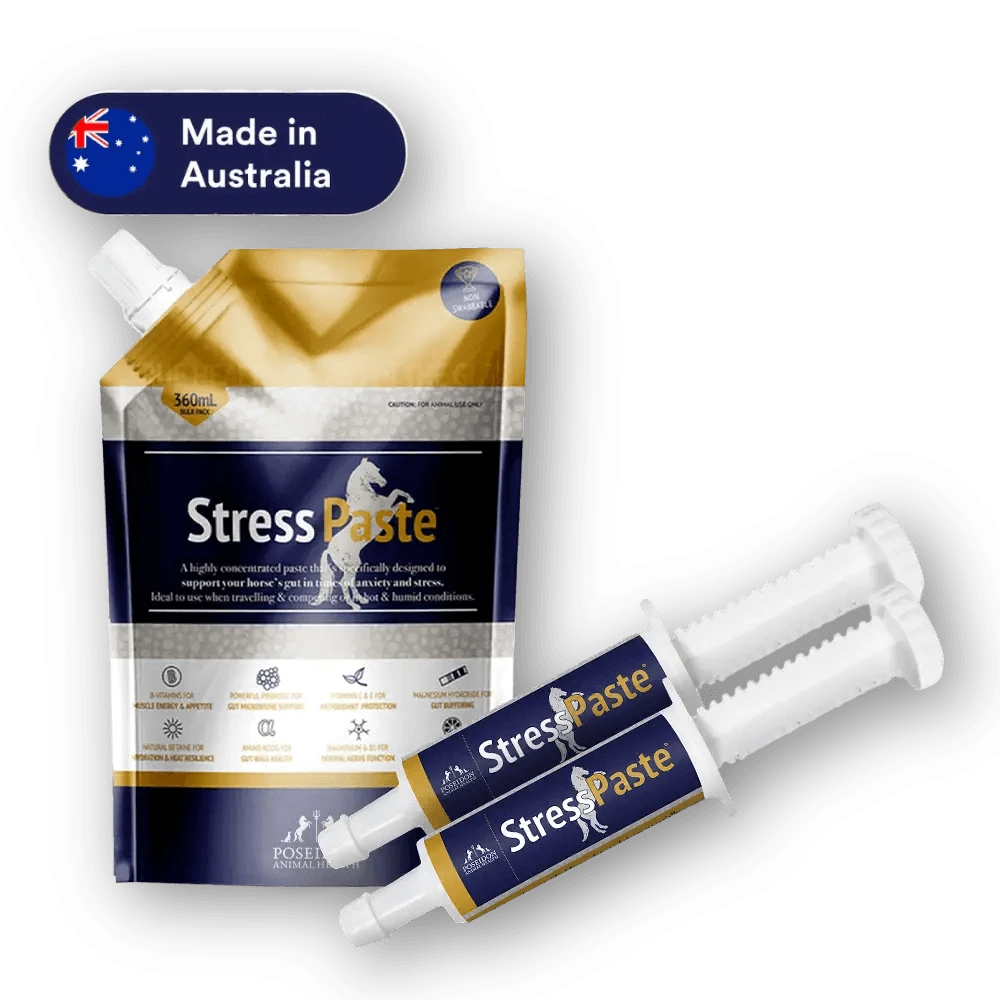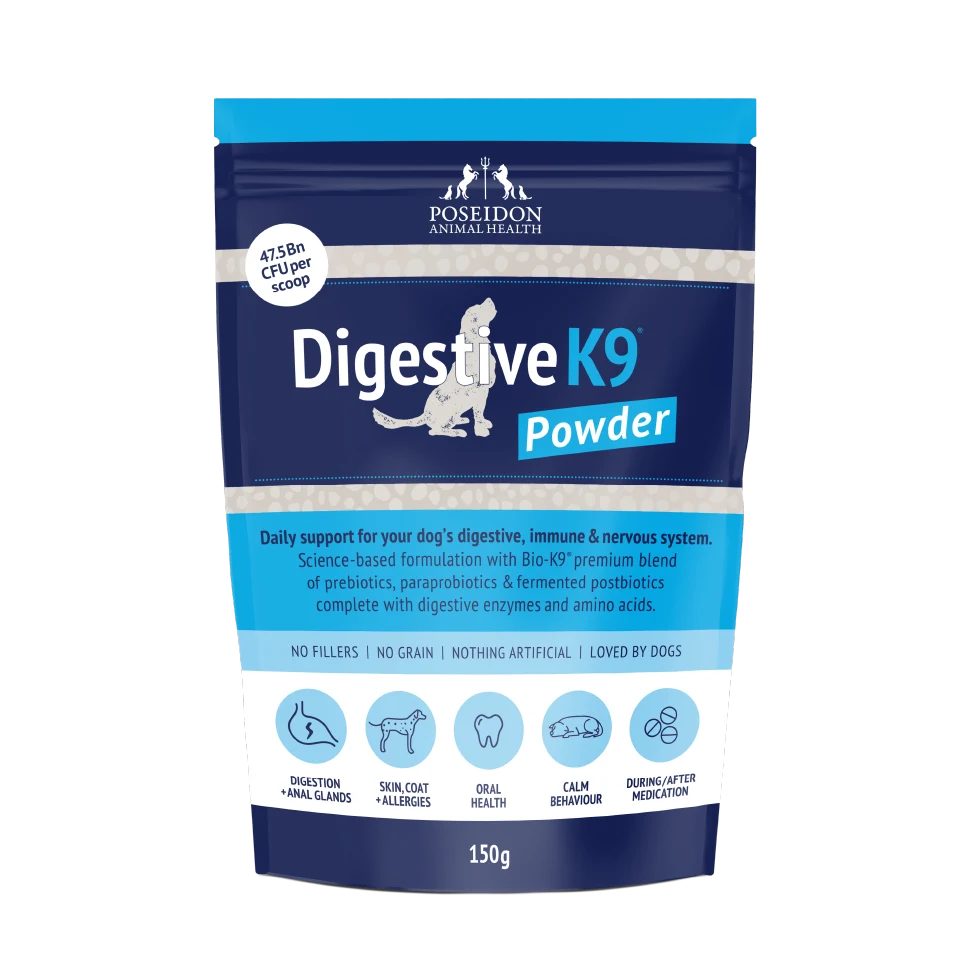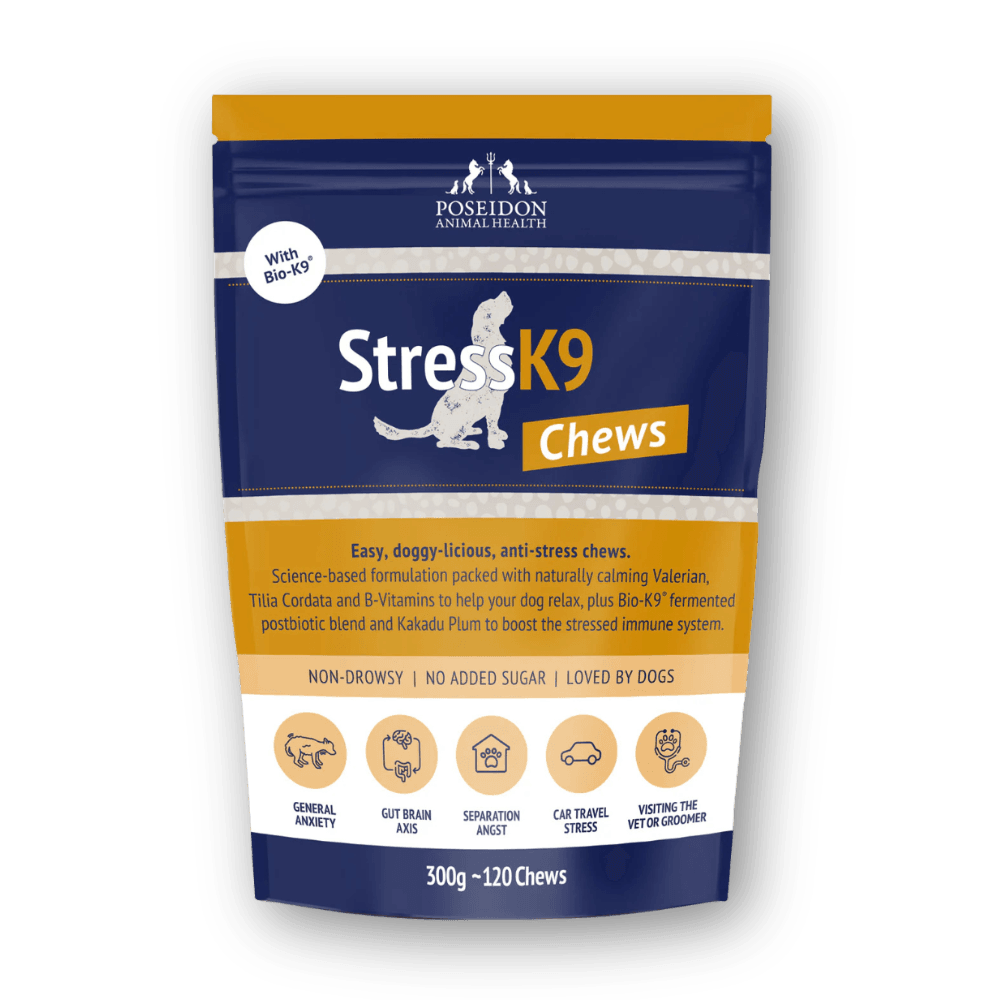
By Dr Erin Roddy, DVM
At Poseidon Animal Health we constantly hear from horse owners who are frustrated with trying to manage an overweight horse or pony with laminitis. In many cases the horse or pony was already living with laminitis when the client purchased or “inherited” them, and the owner is trying to work out how to provide for the suffering horse with the best quality of life possible and also trying to find a way that the horse can be active, and enjoy doing things again!
Diet & exercise are key for ponies with laminitis
Traditionally, the only methods of managing acute or chronic laminitis were dietary restrictions and controlled exercise.
To lose weight, and break the cycle of Insulin Resistance that so often leads to Laminitis, the horse or pony needs to burn more calories than it consumes.
We recommend diets low in starch and sugar such as grassy hays (teff or Rhodes grasses are excellent) and a vitamin and mineral balancer to ensure a balanced diet (Daily Balance is perfect for this). Grazing should be outside of the pasture’s growing times (10 am to 6pm in most seasons) and should be on older, longer pastures (avoiding short, sweet, actively growing grass).
Once the horse is through the acute stage of the laminitis, and in conjunction with farrier and vet advice, hand walking and then saddle walking progressing to light exercise will help burn excess calories and reduce the horse or pony’s body size - and therefore impact of their weight on their hooves.
Caring for a laminitic pony is not as simple as it sounds
In real life, ticking all the boxes on this list of strategies to reduce laminitis in your horse or pony can be difficult to achieve.
Many laminitic horses are so sensitive to sugars and starch in their diet that even limited grazing on appropriate pastures will cause a relapse into active laminitis. Owners whose horses are agisted may not have access to appropriate pastures or may not be able to confine horses at the correct times, if at all. Demands of work, travel and family can make organizing perfectly controlled grazing times every day impossible.
In some areas it can be difficult to get grassy hays such as teff or Rhodes grass or it may be difficult to get a consistent supply. I have consulted with many horse owners with no access to grassy hays at all, and others where grass hay is prohibitively expensive or only intermittently available. Lucerne hay is low in starch and is an excellent source of protein but can be way too calorie dense for many overweight or laminitic horses. Soaking hay is definitely a good solution to reduce sugar intake, but it is time intensive and messy and in hot/humid climates can be dangerous as soaked hay can become moldy very quickly. Again, many of our clients keep their horses on agistment where it may not be an option to either soak the hay or feed the hay out once it is soaked.
Even when it is possible for owners to do all the right things: confine their animals to stables or dry lots, feed only low starch hay out of slow feeders at a carefully restricted amount, and tailor an exercise program to exactly what is recommended by professionals and tolerated by the pony, it often feels that the horse’s quality of life in these situations is pretty miserable, and many owners wonder if the treatment for laminitis is as cruel as the disease.
In some cases, the horse’s insulin resistance and dysregulation are so chronic that it would take months or even years to correct their condition, with little to no improvement or relief for the horse in the short term.
Metabolize® – A new supplement designed for laminitic horses
It was in answer to this difficult situation that Poseidon Animal Health created Metabolize®, providing new hope for overweight and laminitic horses and ponies. Metabolize hopes to attack the vicious cycle of sugar sensitivity and insulin resistance at each stage - starting from as soon as sugars are consumed, all the way through the digestion and absorption phases. In comparison to competitor’s products, MetaboLize® has this unique advantage of targeting each stage where sugar travels through the pony’s body in order to help their body to revert to a healthy method of processing sugar. Metabolize even aims to protect the horse’s system from the dangerous fats which re-enter the blood stream as fatty tissue is burned through exercise.
MetaboLize® might assist laminitic horses escape the vicious cycle of sugar sensitivity, insulin resistance, and insulin dysregulation. By addressing the pathways which aren’t working, MetaboLize® is designed to 'jump start' the pony’s body so it can begin to process sugar normally again - which can cut months or years off the horse’s treatment time, and aims to protect the horse from relapse.
MetaboLize® is also incredibly useful in situations where best case management isn’t possible for time, financial, or logistic reasons. In our clinical trial, we noted that horses who had been given MetaboLize were able to begin exercise much sooner than horses who hadn’t been administered MetaboLize.
Many of the horses and ponies who were given MetaboLize® also demonstrated increased energy and were more interested in work.
The ability to exercise overweight and laminitic horses and ponies and the desire on the part of the patients to move around freely is vital in burning calories, reducing fatty deposits, and preventing a relapse of obesity and laminitis. It is much easier and safer to burn calories and fat than to try to waste them away through starvation.
We truly believe MetaboLize® is a miracle product for horse owners and vets to address the growing number of horses and ponies suffering from Laminitis, obesity, insulin resistance, and dysregulation. Discover Metabolize® here – and if you have any questions, read our Product FAQs or reach out. We’re here to help as much as we can!






















